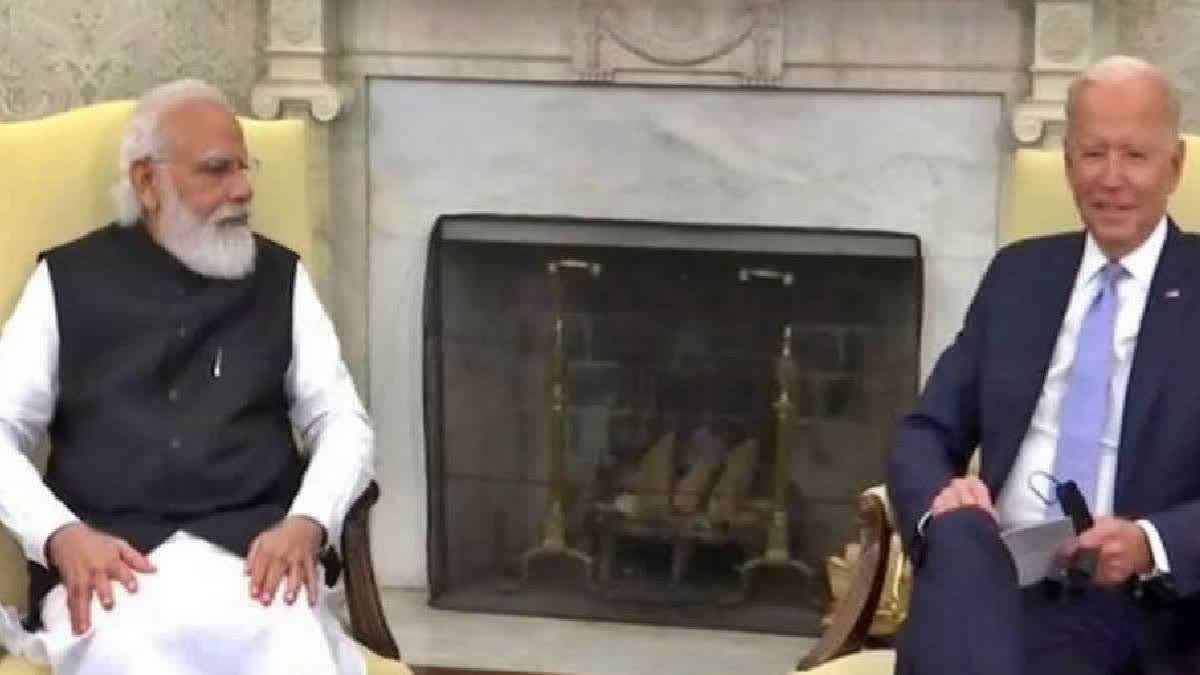New Delhi: Ahead of India’s hosting of the G20 summit of leading economies, its prime minister invited 125 mostly developing countries to a virtual meeting in January to signal New Delhi’s intention to be their champion on the world stage.
As the leaders logged onto Zoom, Prime Minister Narendra Modi listed major challenges he said could be better addressed if developing countries had a bigger share in the emerging global order: the COVID-19 pandemic, climate change, terrorism, the war in Ukraine.
“The world is in a state of crisis,” Modi said. “Most of the global challenges have not been created by the Global South. But they affect us more.”India has pledged to amplify the voice of the so-called Global South — a wide of expanse of mostly developing countries, many of them former colonies, in Asia, Africa, the Middle East, Latin America, Oceania and the Caribbean.
That pledge will be put to the test this week when world leaders arrive in New Delhi for this year’s G20 summit, which begins Saturday. But India has promoted itself not only as a bridge to the developing world, but as a rising global player and — importantly — a mediator between the West and Russia.
Steering through fractures among the world’s various blocs over Russia’s war in Ukraine will be a “diplomatic high-wire act” for India, said Milan Vaishnav, director of the South Asia Program at the Carnegie Endowment for International Peace.
None of the several G20 meetings this year have produced a communique, with Russia and China vetoing wording on the war that they once agreed to at last year’s summit in Indonesia, when the summit statement noted that “most members strongly condemned” the invasion.
If leaders don’t break this deadlock over the weekend, it could lead to the first time that the group’s summit has ended without a communique, an unprecedented setback for the grouping, said John Kirton, director and founder of the G20 Research Group.
Russian President Vladimir Putin is not attending and neither is China’s leader Xi Jinping. Both are sending representatives. Given New Delhi’s historic ties with Moscow, its surging relationship with the West, and its hostility with Beijing over a years-long boundary dispute, Modi is in a diplomatically complicated position.
India has relied on Russia, its Cold War era ally, for military hardware for decades — and more recently, for record amounts of cheap oil. Despite India’s refusal to directly condemn Russia over the war, the West and allies have courted the country aggressively as they bank on it as a bulwark against China’s growing ambitions.
U.S. President Joe Biden pulled out the red carpet for Modi recently as the two signed a slate of deals, the Indian prime minister was a guest of honor at France’s Bastille Day parade, and he was invited to attend the G7 summit a few months ago.
“Is Prime Minister Modi as skilled and as committed as President Widodo of Indonesia was last year to find a way to produce a communique? That’s more of an open question given the progress of Russia’s war against Ukraine,” Kirton said.
As the split over Ukraine casts a shadow over the G20, India has focused on issues affecting developing countries, like food and fuel insecurity, rising inflation, debt and reforms of multilateral development banks. And in a bid to make the G20 more inclusive, Modi has proposed the African Union become a permanent member.
Many G20 countries want to focus on calling out Russia, but for a number of developing nations dealing with local conflicts and extreme weather events, the Ukraine war is not as big a priority, said Happymon Jacob, founder of the New Delhi-based Council for Strategic and Defense Research.(AP)



